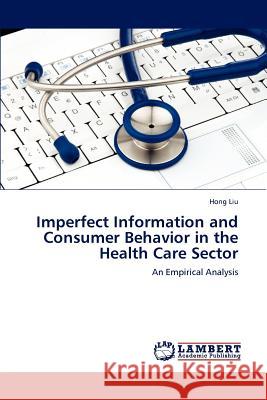Imperfect Information and Consumer Behavior in the Health Care Sector » książka
Imperfect Information and Consumer Behavior in the Health Care Sector
ISBN-13: 9783847314417 / Angielski / Miękka / 2011 / 160 str.
This study examines two important issues of consumer behaviors, associated with imperfect information in the health care sector, consumer health information seeking and the function of patient trust that is inherent in the doctor-patient relationship. First, we examine whether consumers use health information gleaned from non-physician information sources as a substitute or a complement for health services. The results reveal that consumer health information increases the use of physician services on the average, but decrease the number of visits among low-trust patients. Moreover, better-informed consumers make significantly fewer emergency room visits. These findings imply that health care consumerism may be an effective way to control health care costs, at the margin. Second, we study how patient trust impacts the quality of health care differentially by insurance types. It is found that trust has no significant effect on the outcome for HMO patients, but improves the outcome significantly for non-HMO patients. We conclude that the efficiency gain to trust in the production of health services for the traditional doctor-patient relationship may not exist in the HMO setting.











